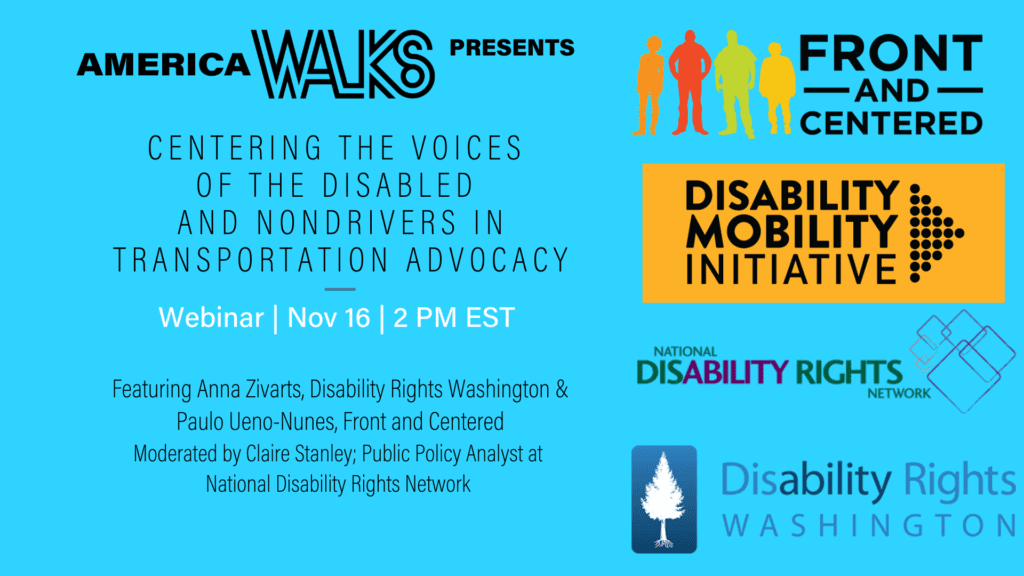You wouldn’t know it from looking at the design of our roads, sidewalks, and curbs, but plenty of people don’t drive. Unfortunately, when lawmakers, planners, and developers make decisions about how to get around, those voices are rarely included — let alone centered.
This is patently inequitable. We need greater transportation advocacy.
Those who can’t drive, don’t have access to a car, or simply choose not to drive are more likely to be members of additionally marginalized groups — disabled folks, elders, BIPOC, and immigrants. Many Americans simply can’t afford to own or maintain a vehicle. Some live in places without the ample free parking that suburban residents enjoy. Others may share a single vehicle between multiple family members and rely heavily on transit that’s functional.
What would a transportation campaign look like that centered those voices instead of more privileged voices? What would public policy around walkability and mobility look like if it weren’t focused on cars and drivers, but instead, everyone else?

Join America Walks on November 16 at 2pm PST for a webinar to hear from panelists whose lived experience is guiding this kind of policy shift. Learn about their innovative tactics to attract attention to their campaign — and how, through transportation advocacy, they’re changing the narrative.
Learn About Transportation Advocacy Focused On Nondrivers
Moderator Claire Stanley, a Public Policy Analyst at National Disability Rights, will be joined by panelists Anna Zivarts, of Disability Rights Washington, and Paulo Ueno-Nunes, of Front and Centered to discuss this critical issue.
Participants will learn about tactics within organizing and hear about political wins for more accessible streets and systems. The speakers will also highlight the many pitfalls in our built environment that drivers may not notice. Whether you’re a nondriver, an active transportation advocate, or work in the field, you need to join and listen to these important perspectives.
Sign up here.